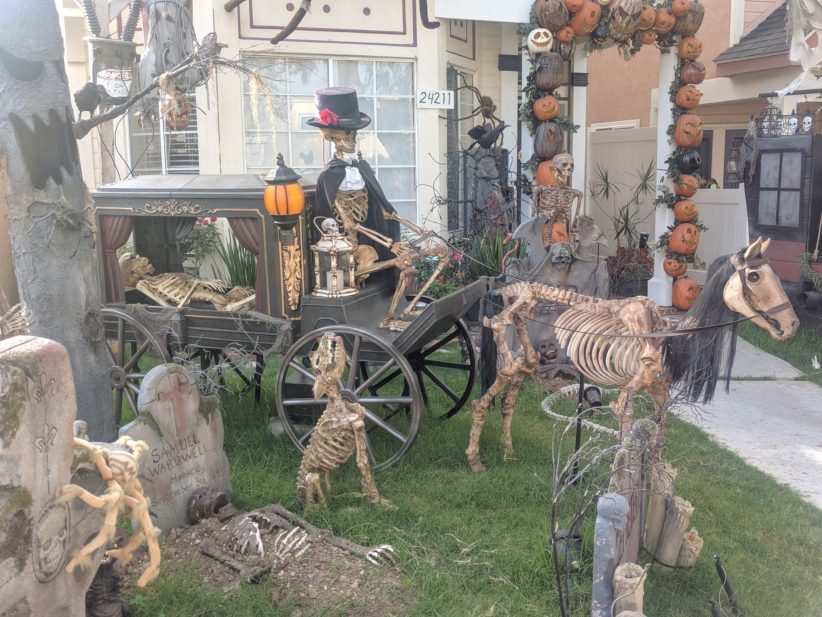We all have some crazy in us, and finding a constructive means of channeling it is often what separates the person ordering the meds from the person receiving them.
I've referred in the past to pathology with utility, the concept that an obsessive trait placed in the appropriate context can function as a superpower that yields superior performance.
I'll be the first to admit that the difference between eccentricity and mental illness is a poorly delineated distinction, often defined based on socioeconomic status more than any reliable absolute criteria. You can intuit the proof of concept by asking yourself how many times you've heard the phrase "eccentric millionaire" compared to "eccentric vagabond."
From personal experience in prior hospitals, if an aggressive visitor in the ED shouted or threw an item at my staff, the attending physician was quick to call security and have that visitor chemically sedated or placed in 4 point leather restraints...unless that visitor happened to be a surgeon or other specialist in whom such behavior had been inappropriately tolerated (this was fortunately the exception more than the rule).
Wealthy or educated people are afforded the luxury of being labeled eccentric rather than ill.
I was thinking about this on a cool October day earlier this week. I'd risen before dawn to catch the sunrise on a bike ride. Over the course of the day, I'd channeled my crazy by attentively adjusting the window shades to allow maximum sunlight to enter our windows and heat our home. It's a process, adjusting shutters to match the angle of the sun.
As I surveyed the warm glow of sunset over the Pacific, I made a mental note of how our house was a balmy 70 degrees despite the day being far cooler. It was a small victory worth savoring.
Being the son of immigrants, it's been ingrained as my moral duty not to use our central heating when a perfectly economical alternative like leveraging the greenhouse effect to heat our home might suffice.
I felt as if I were channeling my father, who during my high school years would inevitably rouse himself from sleep around midnight and march, bleary-eyed, to the room where I was burning the midnight oil specifically in order to ask me, "Do you really need to have all these lights on in order to study?"
Those traits that make me a little crazy - thinking a few steps ahead during the day to try to heat my home economically - also help me think a few years ahead in terms of securing my life financially. There's a deep, irrational pleasure I take in the planning and the fantasy of how it might impact the future.
Constantly playing mental chess in low stakes arenas (game night with the fellas; shuffling the windows open and closed as a human thermostat) prepares me to excel when the high stakes propositions (planning our financial security) are on the table.
My minor eccentricities underlie and are inseparable from the big wins in my life.
The compulsions satisfied in both circumstances prime me for planning moves several steps ahead in the long game, optimizing the accumulation of marginal gains.
What nuttiness enables you to claim large victories?


Comments 2
I’ve been optimizing the long game since I was 40. It’s always something. This month I re-optimized Roth conversions to maximize conversion for a minimum tax bill that should unfold in a way impervious to the political landscape over the next 4 years. Also I reset my tax basis, paying off all my capital gains using accumulated TLH at the lowest tax rates I’m likely to ever see in my lifetime.
I long for the days when you could just set and forget a 60/40 and yank out 4%/yr in perpetuity or even long for the days when owning bonds made sense. It used to be you could run a scrimmage against trash cans and the trash cans were stable. Now a days the trash cans all move with explosive volatility. Soon enough I’ll likely be relegated to drooling in my lap.
Author
I continue to read and reread your Roth conversion playbook posts for that very reason. Capital preservation and hedging against risk (ass opposed to taking a second helping of it in my portfolio) has become a higher priority as I approach the next phase in my investing life.
Let’s hope you aren’t drooling any time soon; many of us still hope to look to you for advice for a long time to come.
CD